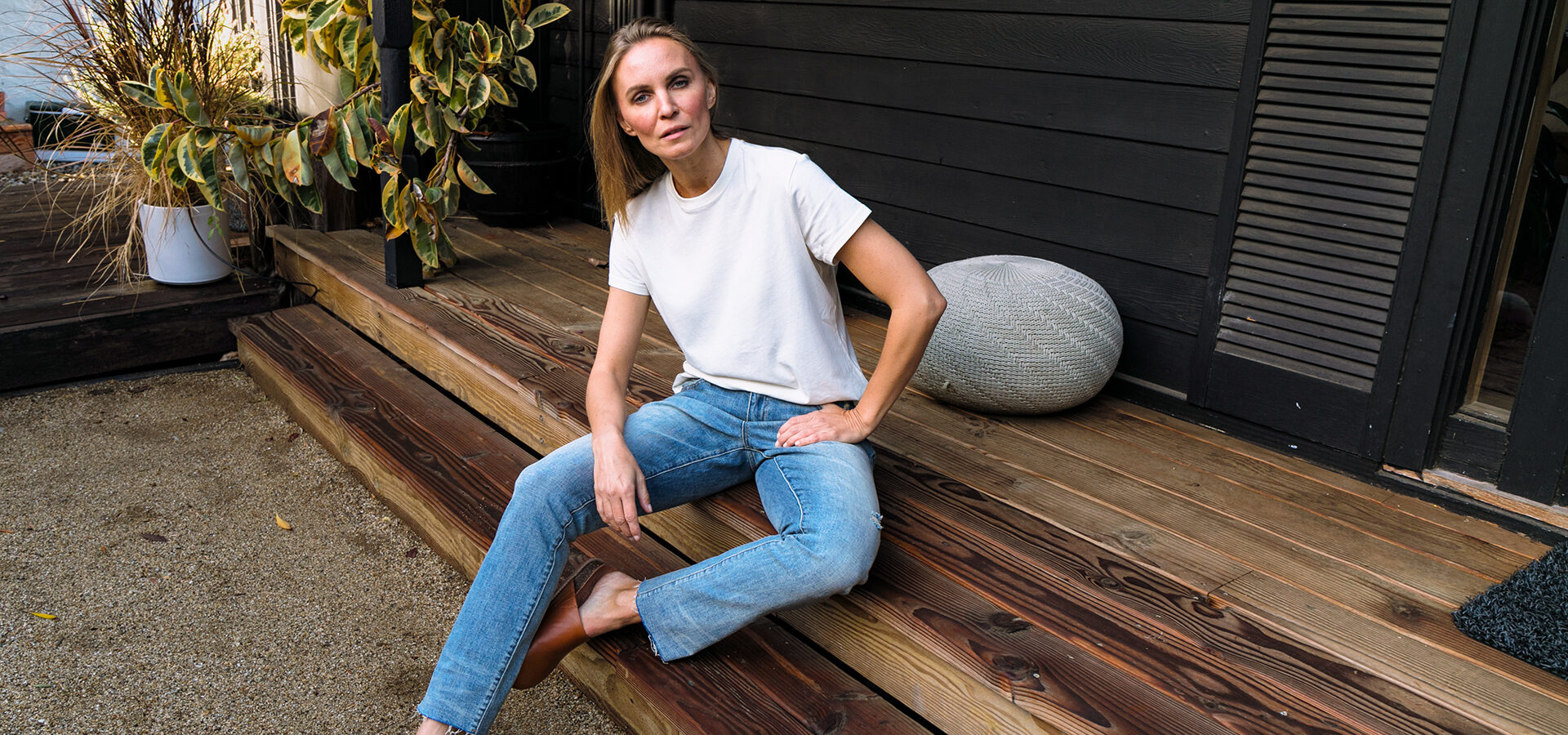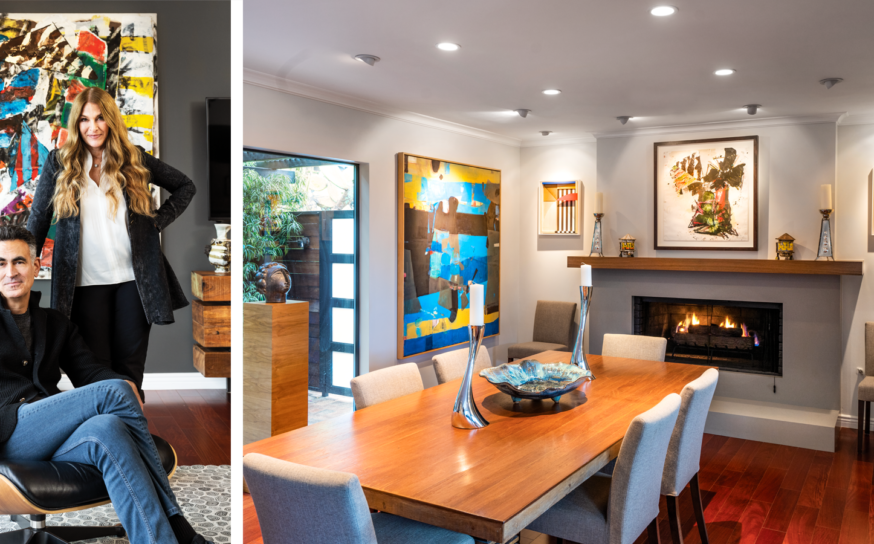Los Angeles–based Oliver Timsit Tailors His Demin Line with an Environmentally-conscious Perspective
Dreaming in denim.
-
CategoryMakers + Entrepreneurs
-
Written byJennie Nunn
-
Photos courtesy ofOliver Logan
Oliver Timsit, founder of Oliver Logan women’s denim brand in Los Angeles, is the first to acknowledge there’s an elephant in the room. “My biggest challenge is being that I am a man making women’s clothes,” says Oliver. “I have to really think outside of myself and lean on my designer, Lauren Merle, and other female coworkers to help smooth that natural obstacle. Jeans are by far the hardest garment to standardize simply because the margin of error is not nearly as wide as that of t-shirts or sweatpants. Anytime you’re not working with the classic extra small to extra-large model, things get trickier. So having an online store can be challenging because we have to speak about our products so that any customer of any size can feel confident about buying our denim.”

Oliver, who began working in fashion when he was 18 (mainly with brands and manufacturers specializing in denim), is no stranger to challenge. Six years ago, when the industry succumbed to hard financial times, he discovered he was out of a job. “I had just moved back to LA from New York, and was, for lack of better words, desperate,” recalls Oliver. “I reached out to the network I had built over the years, and although nobody was hiring, I noticed a trend. Suppliers were still looking to make and sell products to fill their factories, and wholesale customers needed new apparel.”
From there, Oliver launched DD Apparel, which initially began as a trading company. “It was great for a while, but as luck would have it, things turned again, and two of my biggest clients had gone bankrupt, leaving DD Apparel with 50,000 pairs of jeans that were now my responsibility,” recounts Oliver. “I had dreamed of my brand and, at that moment, had a choice to make. Do I let these jeans go into a landfill somewhere, or do I create something new?”
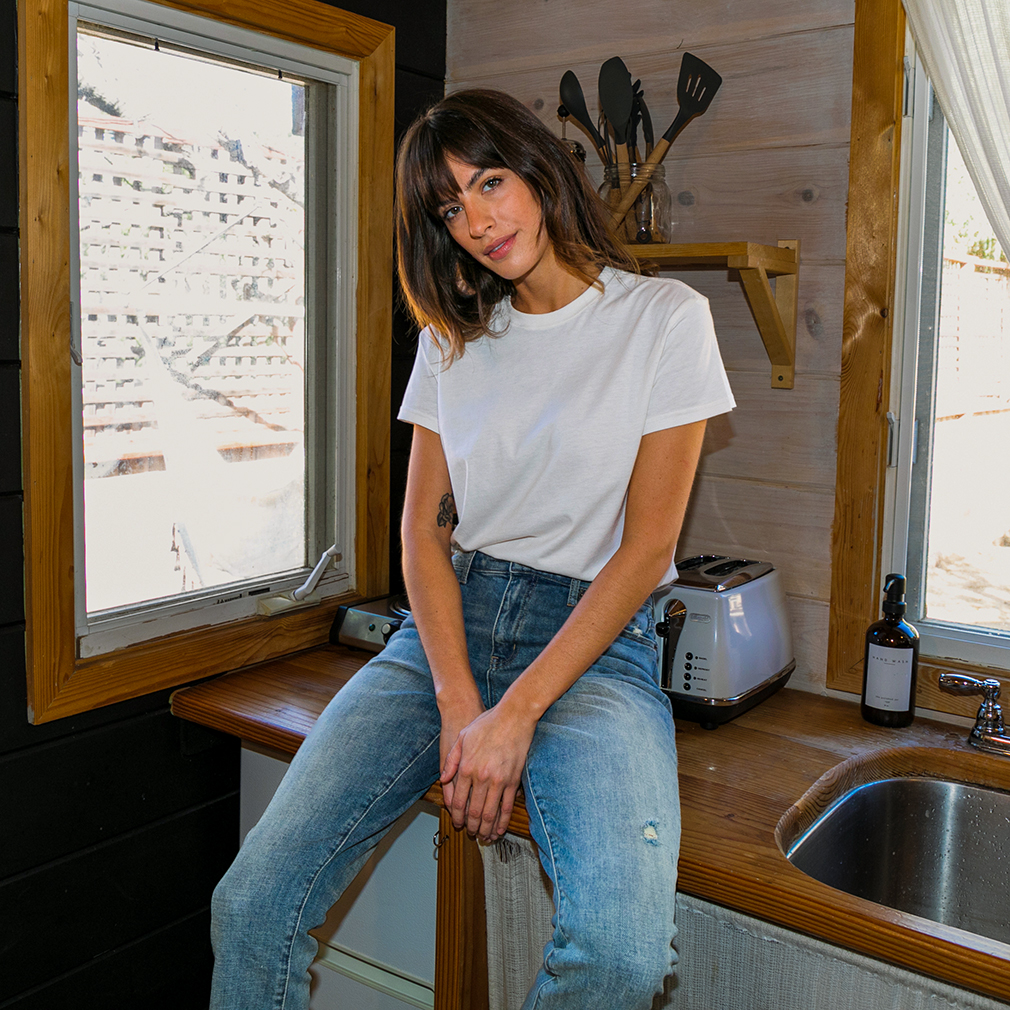
Using the only resources he had on-hand, his new company, Oliver Logan, was conceived. “I went with women’s jeans simply because that is what I had at the time,” says Oliver. “Most of those pairs were cut for women, so in the end, it was merely the most sustainable and responsible choice I could make. Looking back, it’s pretty on the nose that Oliver Logan was repurposed denim from the start.”
Since then, sustainability has been at the forefront of the company’s ethos. “It’s no secret that fast fashion is incredibly harmful to the planet and is one of the leading causes of climate change,” adds Oliver. “Oliver Logan aims to educate the consumer on the environmental importance of slow fashion and the benefits of high-quality and sustainable denim. We practice slow and sustainable fashion firstly because of our environmental responsibility to preserve future generations, and secondly in the hopes that other brands will follow our lead towards a more sustainable fashion industry.”
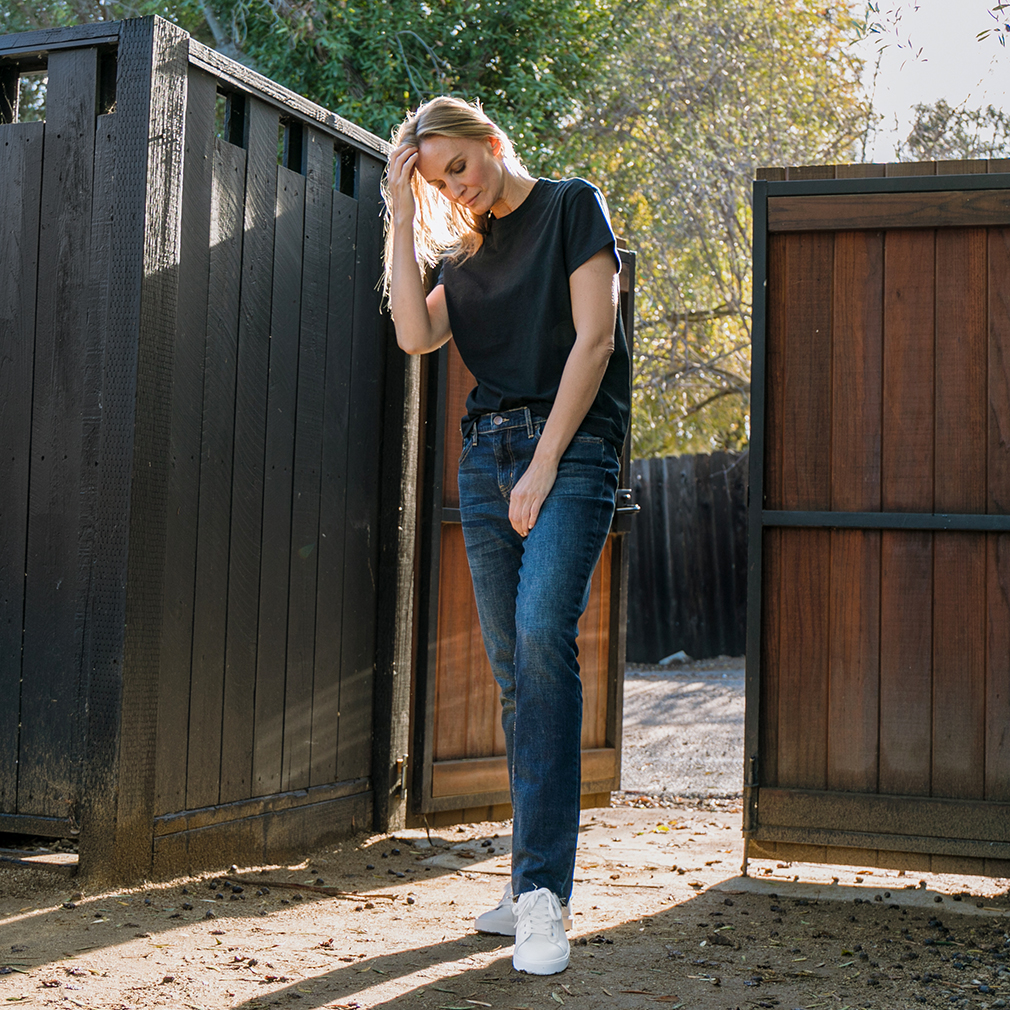
The jeans—ranging from the relaxed fit Crosby, which Oliver likens to the Levi’s 501 as being the company’s staple fit, and the Aberdeen, a versatile, high-waisted paint with a flared leg—are made using recycled denim and repurposed textiles culled from environmentally-conscious manufacturers. “Our jeans are about $100 a pair, which is a lot of money for most people,” explains Oliver. “Right now, we are on an ever-evolving mission asking ourselves how do we educate consumers about the benefits of investing in sustainable denim? And how do we get our customers excited about a pair of jeans that will last for decades?”
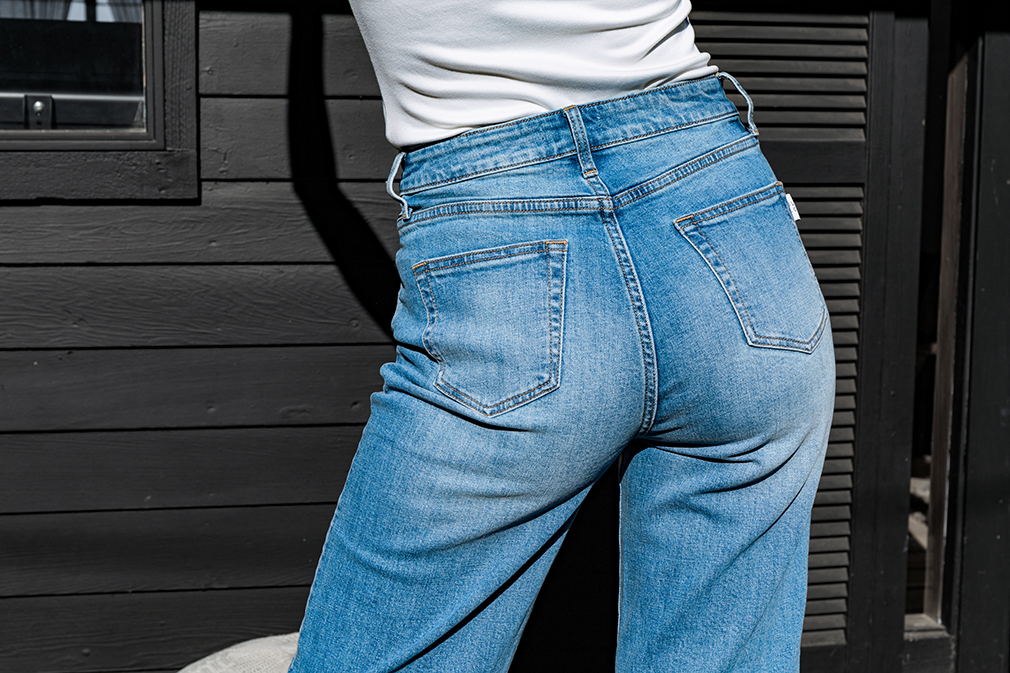
Oliver and his team have also gone beyond jeans and is now debuting an outerwear collection including the James Sherpa coat. “It’s one that I am really excited about,” adds Oliver. “It has a unique 90s’ look and feel. The shell is made from our standard recycled fabric, and the sherpa is sourced from 100-percent recycled polyester. It’s incredibly soft and probably the most comfortable style that we offer.”
Now available in 100 stores nationwide with plans to expand, Oliver hopes to open a brick-and-mortar location in the next two years. “The plan is to start slow with seasonal pop-ups and see how it goes,” says Oliver. “We want to give the community a chance to try us out before committing to an area.”
But, for Oliver the on-the-job creativity remains one of his favorite aspects. “I love sitting down with my designer and seeing her sketches, zeroing in on the details, and getting it perfect before sending it off to manufacturers,” says Oliver. “I love seeing something from start to finish, from a sketch in a notepad to a fit on a model and everything in between.”
Hey, Weekend: Love, Lanai
Wellness, relaxation and romance on a small but magical Hawaiian island.
California’s in the Driver’s Seat on Zero-Emission Vehicles
What other states could learn from the state’s aggressive electric agenda.
Get the Latest Stories




